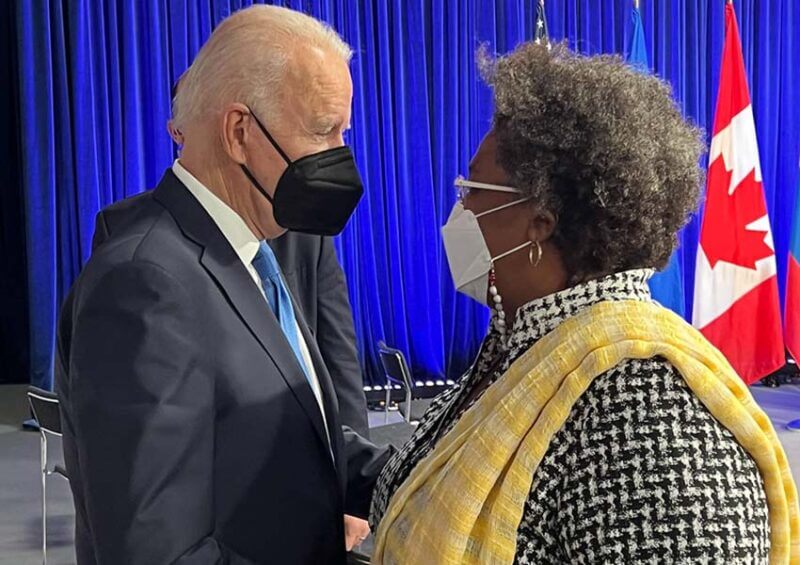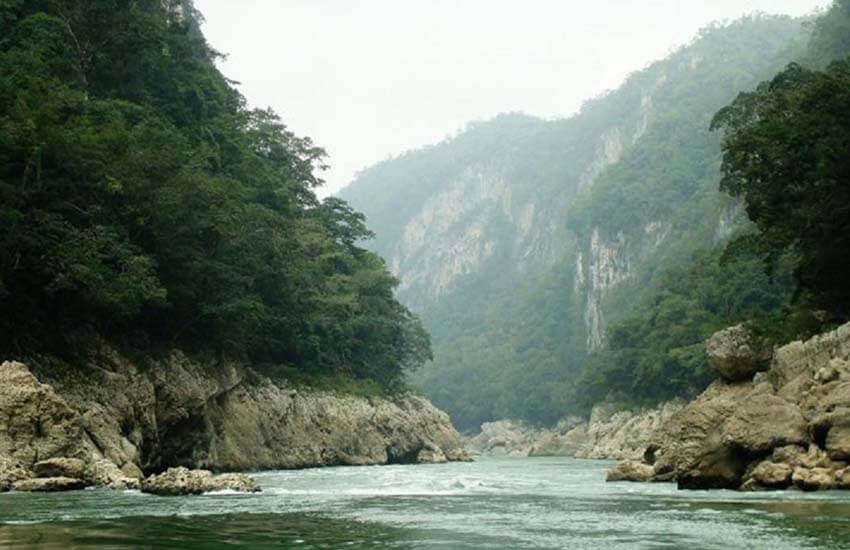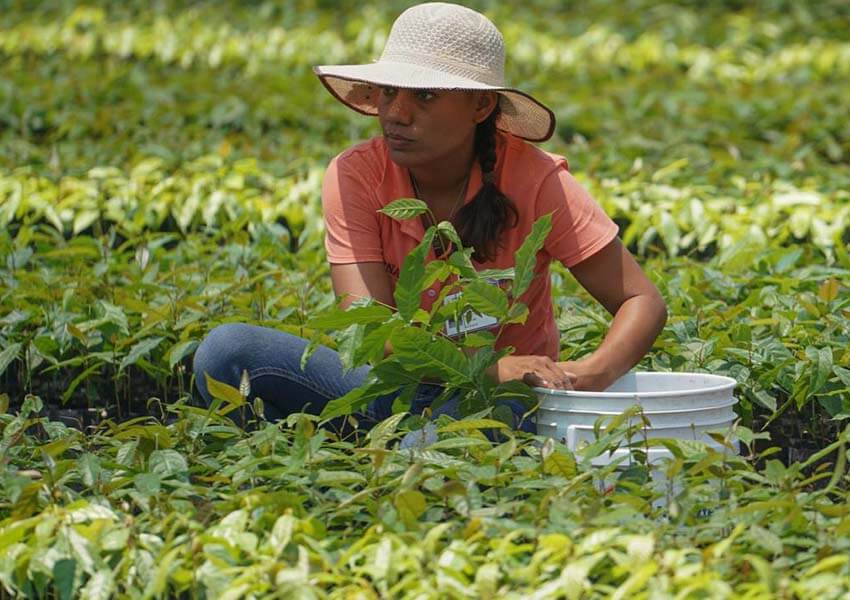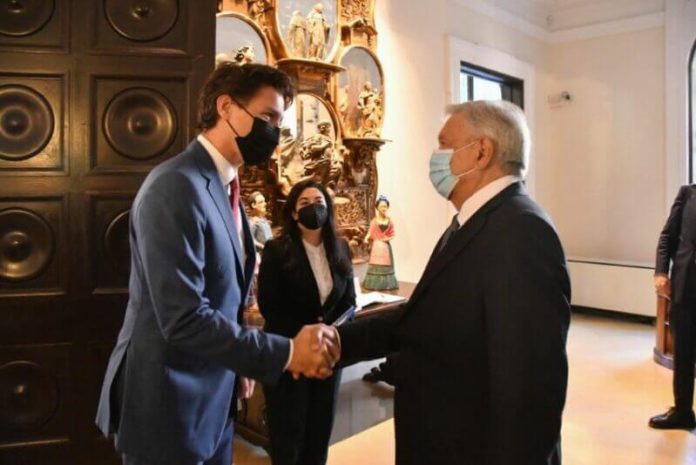Rarely in history has the relationship between Mexico and the United States been so ambiguous as today when, by dint of an invitation from President Joe Biden, the North American Leaders’ Summit takes place in Washington, D.C.
It will be the first face-to-face trilateral meeting of North American heads of state since 2016 after they were discontinued by Donald Trump.
U.S. President Biden and Canadian Prime Minister Justin Trudeau have met twice in person already this year. First in October, in Rome, as part of the G20 — the international forum that brings together the world’s 20 major economies and accounts for more than 80% of world GDP, 75% of global trade, 60% of the world’s population, as well as 75% of global carbon emissions. They also met just two weeks ago in Glasgow at the United Nations Climate Change Conference, the most important meeting yet on that subject.
A priority for both of those previous summits was reaffirming international efforts to limit the increase in global mean temperature to 1.5 C and to reduce greenhouse gas emissions that continue to warm the planet. President López Obrador chose not to attend either of the two summits, so today will be the first time that he is meeting in person with his North American counterparts.
But what will Presidents Biden and López Obrador and Prime Minister Trudeau talk about when they meet today? What kind of agreements might they reach for?

Things seem to suggest that the main topics on the agenda will be the economy and competitiveness, security (drug trafficking and smuggling of firearms to Mexico through the U.S. border), COVID-19, migration and climate change.
The last two issues will likely be the most contentious, and the likely outcomes of the meeting will slant toward the individual political yearnings of all three leaders.
President Biden is under relentless internal pressure, by both Democrats and Republicans, to stop the flood of migration at the southern border, and this is one of the major political crises of his first year in the White House.
Also, the U.S. and Canada have both expressed deep public concerns over the negative impacts that President López Obrador’s electricity reform will have on the billions of dollars invested by American and Canadian companies in Mexico.
Adding fuel to the fire, President Biden has mandated that half of all new vehicles sold in 2030 in the U.S. be zero-emissions, and he is also working toward preferential tax incentives to promote the purchase of all-American-built, union-made electric vehicles. Neither Canada nor Mexico looks favorably on these new vehicle policies.
Biden also canceled the Keystone XL pipeline expansion which, given the huge stakes that Canada has in that project, has embittered his relationship with Trudeau.

And their positions on what is happening in Cuba, Nicaragua and Venezuela will be the elephant in the room when the three leaders meet. Will they even bring that up?
It is hard to imagine in the modern history of the Mexico-U.S. relationship two presidents as dissimilar as López Obrador and Biden. Not only do they differ in fundamental visions for their countries (and the world), but their political styles will probably mix like oil and water during their discussions.
Furthermore, President Biden wants to position himself as a champion in confronting the global warming challenge while President López Obrador has chosen to completely ignore this crucial planetary threat.
Differences become especially acute when considering how Biden and López Obrador regard environmental issues, particularly climate change. These differences are strongly reflected in their public policies and investment priorities.
Tackling global warming was one of President Biden’s main campaign promises. On Monday, he launched his new infrastructure program, with strong bipartisan support, for more than US $1 trillion, of which US $73 billion is destined for the electric grid, $47 billion for climate resilience/adaptation, $21 billion for environmental projects and $7.5 billion for electric vehicles.
He has also pledged that the U.S. will reach net-zero emissions by 2050 and reduce greenhouse gases by 50% to 52% below 2005 levels by 2030. As an environmental statement, Biden canceled the Keystone pipeline expansion on his first day as president.

In contrast, fighting climate change is not a priority for President López Obrador.
The construction of the Dos Bocas oil refinery in Tabasco, the “modernization” of another six refineries in Mexico, and Pemex’s acquisition from Shell Oil of the Deer Park refinery in Texas leave no doubt about the government’s continued preference for reliance on fossil fuels. And Mexico’s governmental investments in environmental conservation fall far short of what is needed and what its citizens demand.
Environmental investments in the 2022 federal budget (submitted by the president and approved a few days ago by Congress — in which the ruling Morena party and its allies have a majority) was $41 billion pesos (about US $2 billion). But most of it — 34 billion pesos, or 83% of the total environmental budget — will go to hydraulic infrastructure managed by the National Water Commission (Conagua).
Only 2.16% of the environmental budget will go to the Commission for Natural Protected Areas (Conanp), responsible for protecting biodiversity and environmental services on 91 million hectares throughout the country; 5.95% will go to the National Forest Commission (Conafor), which oversees the country’s extensive forests; and a trifling 0.18% will go to the federal environmental agency (Profepa), responsible for protecting the environment.
On the other hand, the highly controversial federal program Sembrando Vida (Sowing Life) was budgeted 29.5 billion pesos, and two megaprojects strongly criticized for their impacts on the environment and their contribution to climate change got a big chunk of the federal budget: about 63 billion pesos for the Maya Train and 45 billion pesos for the Dos Bocas oil refinery.
At today’s summit, beyond the differences of the three heads of state, the citizens of Canada, the U.S. and Mexico expect that their leaders at least bear in mind the raison d’être for the 2020 U.S.-Mexico-Canada Agreement: strengthening the longstanding friendship among the countries and their peoples; establishing a clear, transparent, predictable legal and commercial framework for business planning; promoting high levels of environmental protection; and furthering the aims of sustainable development.
Will these men be up to these tasks? Will they be able to find common ground amid their many differences? Will the Three Amigos be back in business?
Omar Vidal, a scientist, was a university professor in Mexico, is a former senior officer at the UN Environment Program and former director-general of the World Wildlife Fund-Mexico.
Richard C. Brusca is a research scientist at the University of Arizona, former executive director of the Arizona-Sonora Desert Museum, and author of over 200 research articles and 20 books.
